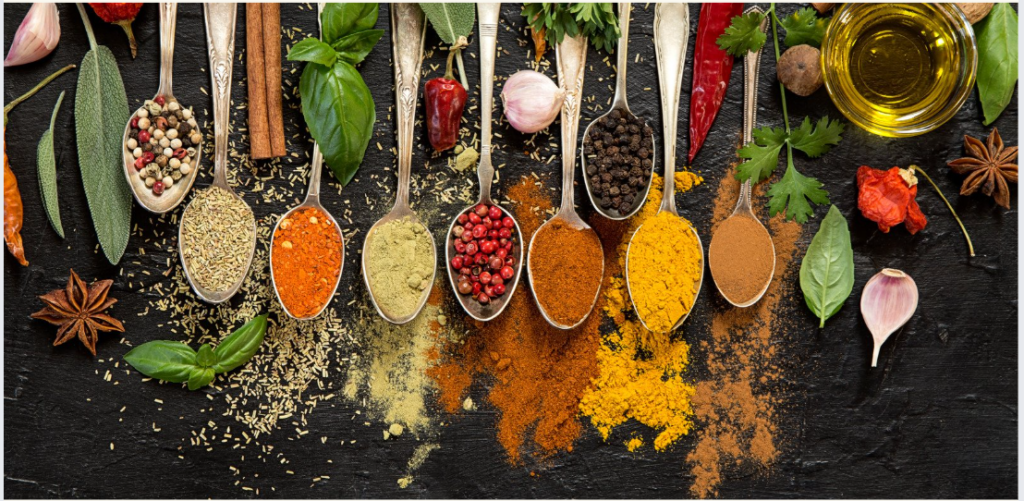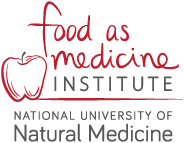
The Power of Food in Healing
The concept of “food as medicine” isn’t new. In fact herbs, roots and other plants have been used for centuries in traditional medical systems like Ayurveda, Traditional Chinese Medicine, and Indigenous medicine to treat and prevent a variety of conditions, including boosting immune support.
Researchers have studied many of these traditions, validating their approach and showing how nutrients and bioactive compounds help regulate immunity. The foods we choose can influence inflammation, infection risk, recovery speed, and overall resilience against bugs and viruses.
Here we highlight how our diet can support immunity, the nutrients involved, and which foods stand out as “immune boosters.”
How Food Supports the Immune System
Many people don’t realize that there are two components to the immune system. The innate system is what we are born with and is our first line of defense against foreign invaders. The adaptive system is what we acquire over time, through exposure to illness and viruses and the development of antibodies. Both systems require adequate nutrition to fully function properly.
- Micronutrients including vitamins and minerals are crucial components for immune function. Deficiencies in vitamins A, C, D, E, zinc, selenium, and iron impair immune function.
- Antioxidants found in brightly colored fruits, vegetables and herbs reduce oxidative stress caused by infections and chronic inflammation.
- A healthy gut microbiome positively influences immune regulation. About 70% of immune cells are found in our gut and our diet shapes the good bacteria in our microbiome.
- Nutrition and immunity are directly linked. Research shows that an unhealthy or malnourished diet (lacking in macro and micronutrients) can lead to weakened immune responses, leaving people more vulnerable to illness and disease.
Key Nutrients and Compounds for Immune Health
While an all-round healthy diet supports immune health, there are specific nutrients that are particularly important.
Vitamin C
This potent nutrient has long been connected to common colds. It supports white blood cell function, increases skin/mucosal defenses, and neutralizes free radicals.
Research suggests that taking vitamin C regularly may reduce the duration of colds. Addi it to meals by including raw or lightly cooked vitamin C-rich foods like citrus (lemons, oranges, grapefruit), bell peppers, and strawberries.
Vitamin D
A fat-soluble vitamin, vitamin D plays a role in regulating antimicrobial peptides, immune signaling, and T-cell activation. It comes from exposing our skin to the sun, which triggers a cascade of events that create vitamin D. For those is cloudier climates, like the Pacific Northwest, taking supplements can reduce the risk of acute respiratory infections, especially in deficient individuals. Besides sun exposure, the best sources are fatty fish (salmon, mackerel), fortified foods, and mushrooms.
Zinc
Zinc is required for immune cell development (T-cells, B-Cells, natural killer cells), wound healing, and antiviral defense. It has strong antioxidative properties, reducing free radicals and inflammation. Low levels of zinc can make us more vulnerable to getting infections and autoimmune disease, reduced wound healing and decreased antibody production.
Some of the best whole-foods sources are shellfish, pumpkin seeds, beans, and nuts.
Polyphenols & Flavonoids
These plant-based compounds are linked to reducing inflammation, boosting immune activity and promoting healthy gut bacteria. They act by reducing virus replication (spread throughout the body), regulating inflammation, and upregulating protective enzymes. Green tea catechins and berry flavonoids show antiviral effects and reduce the development and progression of many chronic diseases. Some of the best sources are green tea, apples, onions, and dark chocolate.
Omega-3 Fatty Acids
This polyunsaturated fatty acid has powerful anti-inflammatory properties and helps lower immune overactivation and inflammation. The effects of omega-3s on the immune system have been studied for decades. Research suggests that EPA/DHA impacts all immune cells studies and is linked to improved immune resilience. While you can find Omega-3 supplements, the best whole-food sources are fatty fish like salmon and sardines, and walnuts, flax, and chia seeds.
Probiotics & Prebiotics
Occurring naturally in many foods, pre- and probiotics can enhance gut microbiome diversity, strengthen gut barrier, and help regulate immune tolerance. Prebiotics are what feed healthy gut bacteria, and probiotics are the good bacteria themselves. They play a key role in the connection between the gut and the body. Research has shown that taking probiotics may reduce the risk of respiratory and GI infections. Many people take probiotic supplements, which can come in condensed form, but they are also found in fermented foods like yogurt, kefir, kimchi, as well as garlic, onions, and bananas.
Cooking with Immune-Boosting Foods
Using immune-boosting foods in your meals doesn’t have to be hard. Many of them are probably already in your pantry or fridge. Simple strategies can help preserve their potent nutrients and make them a part of your everyday meal plan.
Garlic
Contains allicin, a potent compound with antimicrobial, anti-inflammatory, antioxidant, and immune-modulating effects. Adding garlic to your diet can help maintain immune balance promoting immune function. To use in meals at home, add it raw to dressings or lightly sauté for soups/stews to preserve allicin levels.
Ginger
Rich in gingerol, which lowers inflammation and free radicals and supports respiratory health, ginger is another powerful immune tool to use everyday. Used for centuries for its flavor and health benefits, ginger’s benefits are linked to the many phenolics that can influence immune cells like T-cells, macrophages, and neutrophils. Use fresh in stir-fries, teas, or smoothies.
Turmeric
The bright orange root, popular in south Asian and Indian cooking, turmeric contains curcumin which has been linked to boosting immune response, and antimicrobial effects. Research indicates that its most powerful effect is anti-inflammatory, which may help prevent and reduce symptoms of inflammatory diseases. It’s best used in curries, added to roasted vegetables, or mixed into golden milk (with coconut or almond milk). Be sure to use it with black pepper to increase absorption.
Elderberry
Packed with potent antioxidant compounds called anthocyanins, elderberries are connected to antiviral activity, boosting white blood cells (helping to fight infections) and regulating cytokines (which can increase inflammation). Some research suggests that elderberries can help manage and prevent viral respiratory infection, and may reduce the severity of common colds. It’s best taken as a syrup, tea, or supplement.
Ginseng
Used for centuries in Chinese medicine, ginseng has been used for a variety of medicinal uses due to is active compounds, ginsenosides, which interact with immune cells and their pathways. Studies have shown its adaptogenic effects protect from inflammation, autoimmunity, neuroinflammation, and infections. Use it as a supplement, extract, or add the root to stir-fries, soups or tea.
Holy basil
Also known as Tulsi, Holy Basil is known as the “elixir of life” in India. Containing high levels of eugenol, a polyphenol linked to lowering blood sugar, balancing blood pressure, decreasing inflammation, and supporting anxiety and depression.
Research shows it may boost immune function through its immune modulation and immune defense. Mostly commonly used as tea or as an extract or supplement.
General Cooking Tips for Immune Foods:
- Steam vegetables to preserve vitamin C and antioxidants.
- Pair fat-soluble vitamins (A, D, E, K) with healthy fats (olive oil, avocado, nuts).
- Rotate a variety of immune foods to maximize nutrient diversity and benefits.
Takeaways
Food plays a powerful role in shaping immunity, from vitamins and minerals to polyphenols and probiotics. Building a diverse, nutrient-rich diet with immune-supportive whole foods is more effective than relying on supplements or “superfoods” alone. If this is new to you, choose one ingredient to add to your meals this week. Small regular changes can make a big difference in boosting your diet and boosting your immunity and health.

